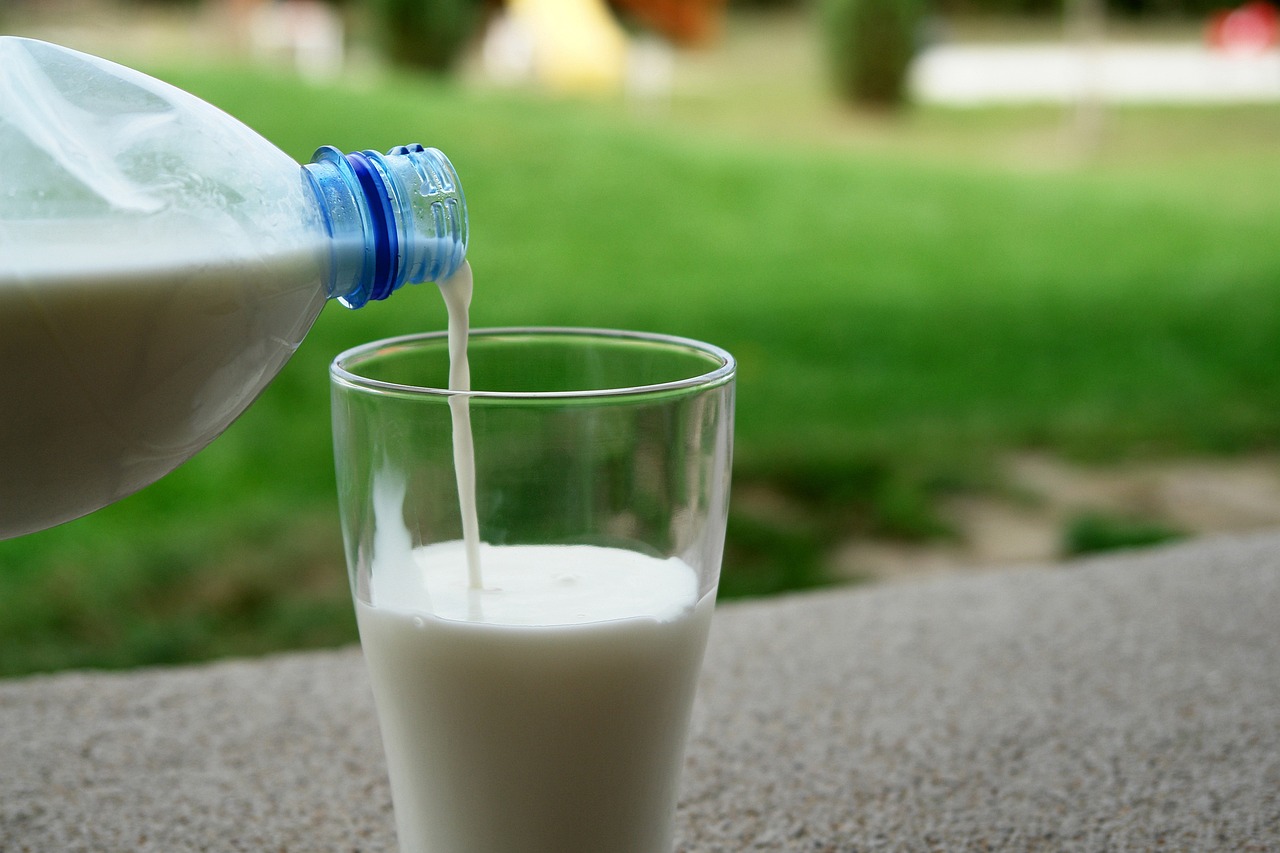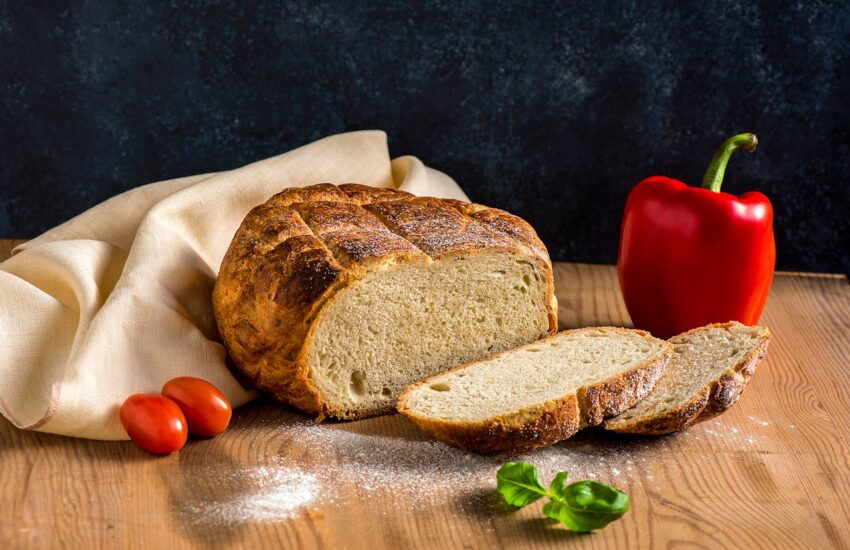It’s Time I Weighed in on Goat’s Milk
When I was a young kid, I, like most American children, was told that I needed to drink lots and lots of milk.
The dairy industry did a really good job of indoctrinating us into believing milk was the only sure path to strong bones and great health.
So I’d pour it on my cereal in the morning, and I’d pour it on my second bowl, too, because no kid can have just one bowl of Trix.
If I was at home, I might have some with lunch, and, of course, I’d have a glass for dinner, too.
It was milk here, milk there, a glass of milk everywhere.
If you’ve been reading my articles for any amount of time, you know that I don’t approve of dairy. It’s not like I think cows are evil and are trying to hurt us…I’ve just done quite a bit of research, and I can’t in good faith recommend cow’s milk anymore.
If you’d like a refresher on why I don’t recommend milk, please see this article right here.
And, while I’ve mentioned switching to other kinds of milk like almond, coconut, and goat, I’ve never actually told you how I feel about goat’s milk.
Well, until today.
Behold, my opinion on goat’s milk.
Goat’s Milk Is Really a Lot Like Cow’s Milk…
…but it’s better for our bodies.
Remember this before you go any further, no other animal on the planet drinks the milk of another species, and no other animal continues to drink milk into adulthood.
We’re unique in this, and it’s OK, really.
The problem is, milk is a substance rich in certain proteins and sugars that are great for the rearing of younger animals, but when it comes to how it affects our bodies, it’s an entirely different story.
Cow’s milk is particularly problematic for us as a species. Again, I’ll reference this article so you can see the damage cow’s milk can do.
Goat’s milk is similar to cow’s milk in quite a few different ways. The biggest difference is, what cow’s milk has in abundance that ultimately affects our health negatively, goat’s milk has in very small amounts. That’s why most people can tolerate it without any serious issues.
So let me show you why it’s superior to cow’s milk
1 – It’s not nearly as inflammatory: Unlike cow’s milk, goat’s milk has significantly less of the protein responsible for inflammation. Inflammation, as you know, can cause a series of problems for our bodies, and the protein that cow’s milk contains in large amounts is almost absent in goat’s milk.
You’ve likely heard of the two different kinds of proteins in cow’s milk. There’s the ever popular whey protein, and then there’s casein protein. For the most part, people don’t have too many problems with whey protein. On the other hand, most, if not all people have a fundamental problem with casein.
Cow’s milk contains a certain kind of casein protein known as A-1. Goat milk, on the other hand, doesn’t have this at all. It has A-2 casein.
Now, the reason this matters is because most people just can’t digest casein protein. And, because of that, inflammation in the gut is produced along with a host of issues; things like IBS, leaky gut, colitis, Crohn’s disease, and an assortment of other auto-immune issues and skin conditions.
Since goat milk is absent of A-1, it makes it that much easier for you to digest, which ultimately makes it a better choice for consumption.
2 – It’s easier on your stomach: Ever go out for a pizza topped with thick layers (or thin if you’re a NYC style fan) of mozzarella?
If you have, did you notice after eating a few slices you feel like your stomach is leading an assault against itself? The reason that happens is because of some of the fat, protein, and sugar composition of the milk cheese you’re eating.
Let’s highlight the first point of difference, which is concerned with the overall lactose in the two. You probably know one or more people who are lactose intolerant.This is a very real condition, and it affects millions of people with some majorly upset tummies.
Well, goat’s milk is substantially lower than cow’s milk in total lactose-content. This means it’s a great option for people with an acute lactose intolerance. Truth is, even if you don’t have a lactose intolerance, it’s still a form of sugar, and the less sugar you have the better.
Also, there’s the difference between cow’s milk and goat’s milk fat-content. Goat’s milk has milder fat content, one your stomach can handle with greater ease. And, one more time linking back to the protein connection, there’s a very specific way the protein in both of the milks a interacts with your stomach.
Both proteins from cow and goat’s milk form a curd when they reach your stomach, but in goat’s milk you’re only getting 2% curd during digestion as opposed to nearly 10% from cow’s milk.
The end result is less irritation overall.
3 – It can help you absorb nutrients with greater ease. The interesting thing about goat and cow’s milk is they’re very similar in terms of nutrition.
But goat milk offers something for your body cow’s milk can’t…the increased ability to deliver the available nutrients in greater degrees than cow’s milk can.
Studies have shown many of the significant nutrients: phosphorous, magnesium, and iron to name a few, are better absorbed when ingested via goat’s milk as opposed to cow’s milk.
This means if you’re looking at what’s better for you on an ounce by ounce basis then goat’s milk is the obvious winner. This whole time dairy farmers are over there hollering that milk is high in calcium, but it really doesn’t matter all that much because your body’s going to have such a hard time absorbing it.
All that being said, goat’s milk as a staple in the diet can help with all sorts of serious and pervasive issues I see as a physician. Things like magnesium deficiency, iron deficiency and calcium deficiency would be better treated with goat’s milk than cow’s milk. People who have spent time studying goats say people with “malabsorption issues, anemia, osteoporosis or prolonged treatments with iron supplements” should be the ones switching over to goat’s milk.
4 – It’s rich in healthy fats: If you know me, you know I’m a big fan of fat… healthy fat that is. Healthy fats are great, and goat’s milk is super high in healthy fats. More so than milk.
There’s a certain kind of fat which makes me recommend goat’s milk with enthusiasm. They’re medium chain triglycerides (MCT), and they’re definitely one of the best fats to include in a well-rounded diet.
Goat’s milk has more MCTs than just about any other animal fat with a whopping 30-35 percent MCT ratio. That’s almost double cow’s milk at 15-20.
And it’s these healthy fat profiles which help goat’s milk do something Americans desperately need to know about. It can help lower LDL (bad) cholesterol while raising good HDL cholesterol.
This makes goat milk a clear winner over dairy.
Are There Any Problems With Goat’s Milk?
Well, if you’re trying to stick to a paleo diet, there are.
Outside of that, I can’t really see any.
Goat’s milk is also more expensive than regular milk, but, in all honesty, that shouldn’t be an issue unless you absolutely love the taste of cow’s milk.
Goat’s milk is also far more potent than cow’s milk. If you’re just drinking regular milk to maintain a healthy lifestyle, a little less goat’s milk goes a long way.
Talk soon,
Dr. Wiggy
www.HealthAsItOughtToBe.com


